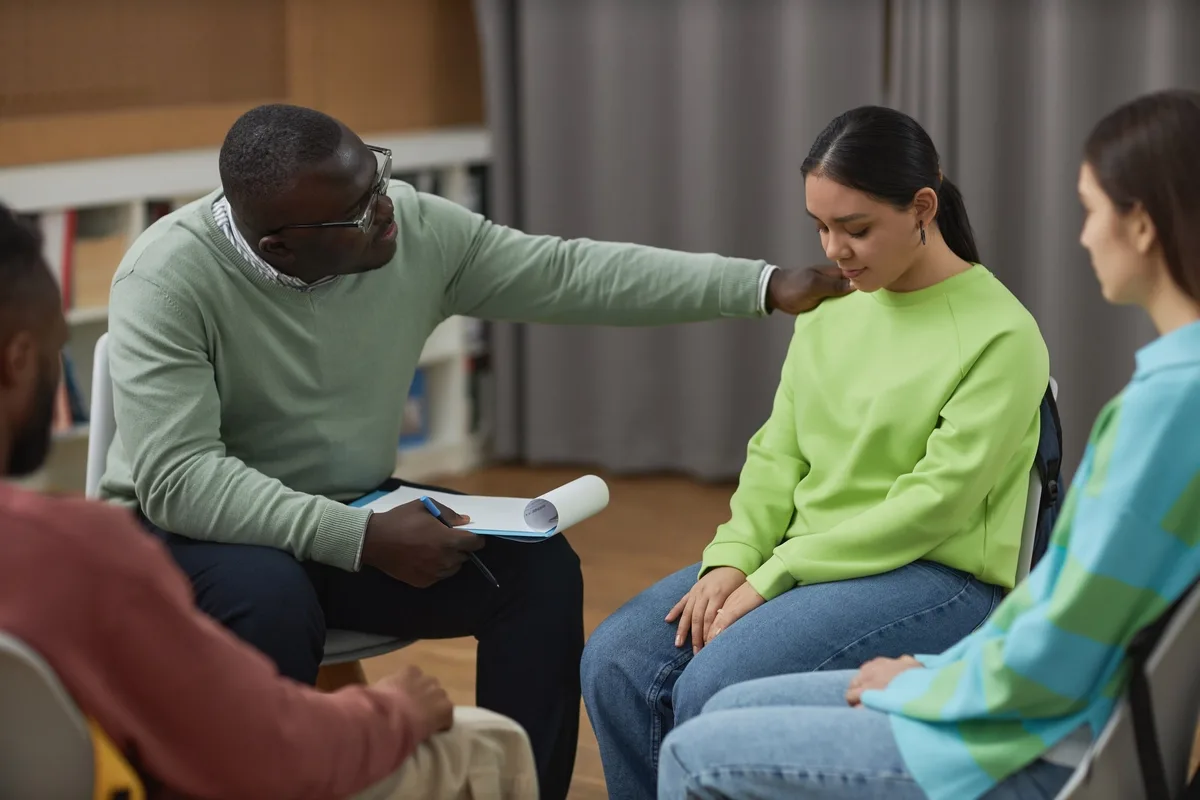24/7 Helpline:
(866) 899-221924/7 Helpline:
(866) 899-2219
Learn more about Aftercare Support centers in De Kalb County

Other Insurance Options

Premera

Magellan Health

PHCS Network

MVP Healthcare

Access to Recovery (ATR) Voucher

ComPsych

Covered California

Group Health Incorporated

Health Partners

Oxford

United Health Care

Ceridian

EmblemHealth

Horizon Healthcare Service

Aetna

GEHA

Highmark

Absolute Total Care

Medical Mutual of Ohio

Regence

CED Mental Health Center
CED Mental Health Center is an outpatient treatment facility that provides behavioral health service...

Ogeechee Behavioral Health
Ogeechee Behavioral Health is dedicated to providing those they service with quality innovative beha...

Flower Hospital Behavioral Health
Flower Hospital Behavioral Health is a private rehab located in Sylvania, Ohio. Flower Hospital Beha...

Cumberland Heights
Cumberland Heights, in Crossville, Tennessee, provides comprehensive, 12-step-focused addiction reco...

Spero Health – Crossville
Spero Health – Crossville is a private rehab located in Crossville, Tennessee. Spero Health – Crossv...

Mission Teens – Crossville MBTC
Mission Teens - Crossville MBTC is a non-denominational Christian Discipleship ministry located in C...















































































AA – Alcoholics Anonymous
AA - Alcoholics Anonymous, located in Sylvania, Alabama, provides alcohol and drug rehab programming...

The Bridge
The Bridge is an outpatient facility that offers treatment for male and female adults that have a su...

Creekside Ranch Treatment Center
Creekside Ranch Treatment Center is a drug and alcohol rehab that supports adults (over 18), situate...

Starting Point Counseling
Starting Point Counseling is a private rehab located in Collinsville, Illinois. Starting Point Couns...

Chestnut Health Systems – Colinsville Connections
Chestnut Health Systems - Colinsville Connections provides clinical support and case management. Che...

Racing For Recovery
Racing For Recovery is a non-profit rehab located in Sylvania, Ohio. Racing For Recovery specializes...

YouthCare of Oklahoma
YouthCare of Oklahoma is an outpatient clinic that provides mental health and substance use treatmen...

Fourth Dimension
Fourth Dimension is a private rehab located in Crossville, Tennessee. Fourth Dimension specializes i...

Volunteer Behavioral Health – Cumberland Mountain Mental Health Center
Volunteer Behavioral Health - Cumberland Mountain Mental Health Center is located in Crossville, Ten...































































































